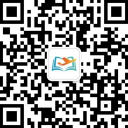剑桥雅思6 Test 2 Passage 3阅读答案解析Numeration
2023-06-18 11:10:02 来源:中国教育在线
剑桥雅思6 Test 2 Passage 3阅读答案解析Numeration,今天中国教育在线就来为大家分析这个问题。
Numeration
计数的历史
剑桥雅思6 Test 2 Passage 3阅读答案解析
第27题答案:B
对应原文:第2段:As they began to settle,grow plants and herd animals,the need for a sophisticated number system became paramount.
答案解析:根据题干中developed与sophisticated的替换定位到第2段的这一句,原文翻译过来是:随着人类开始定居、种植植物和放养牲畜,对复杂数字系统的需求变得无比重要。这与B选项表达的意思几乎一直,因此确定答案为B
第28题答案:E
对应原文:第3段:But in real situations the number and words are often accompanied by gestures to help resolve any confusion…This basic approach is limited in the range of numbers that it can express
答案解析:根据中hand signal与gestures的同义替换定位到第3段额这句话。之所以出现需要使用手势的原因还是由于能够使用的数字范围有限(本段开头的举例和最后一句的总结),因此确定E为正确答案。
第29题答案:A
对应原文:第4段:The average person in the seventh century in Europe was not as familiar with numbers as we are today.In fact,to qualify as a witness in a court of law a man had to be able to count to nine!
答案解析:根据seventh-century Europe定位到第4段的这句话。原文中提到“要取得法庭上的证人资格,一个人必须得能数到9才行”,对应A选项中fulfil a civic role,由此确定答案。
第30题答案:C
对应原文:第5段:When the number 4 can be registered in the mind as a specific word,independent of the object being referenced,the individual is ready to take the first step toward the development of a notational system for numbers and,from there,to arithmetic.
答案解析:根据题干中“数字作为实际物体外的抽象概念”这一含义定位到第5段。段末提到从这里走向代数。因此确定C为正确答案。
第31题答案:G
对应原文:第6段:Traces of the very first stages in the development of numeration can be seen in several living languages today…seven distinct sets of words for numbers according to the class of the item being counted
答案解析:根据题干中“物品类别不同,数字表达不同”的含义定位到第6段。这一段开头提到这是早期数字发展的残留。very first stages与early对应,由此确定G为答案。
第32题答案:TRUE
对应原文:第2段:Our ancestors had little use for actual numbers;instead their considerations would have been more of the kind Is this enough?rather than How many?
答案解析:原文中提到我们的祖先在思考的时候会更加关注这是否足够,而不是有多少。其中enough,rather than,how many分别与题文章来自 雅思干中sufficiency,more important和quantity对应。即题干中的所有信息点在原文中都有出现,由此判断为TRUE。
第33题答案:FALSE
对应原文:第3段:The indigenous peoples of Tasmania were only able to count one,two,many
答案解析:文中提到塔斯马尼亚的土著人可以数一、二和多,也就是只有三个词,而非题干上说的四个词,因此判断为FALSE
第34题答案:TRUE
对应原文:第3段:But in real situations the number and words are often accompanied by gestures to help resolve any confusion.
答案解析:原文中提到,数字和词汇通常伴随手势也帮助解决疑惑。题干中的simple number systems对应之前的背景,body language对应gestures,resolve any confusion对应prevent misunderstanding,即所有主要信息点都可以在原文中找到依据,由此确定答案为TRUE。
第35题答案:FALSE
对应原文:第4段:The lack of ability of some cultures to deal with large numbers is not really surprising.
答案解析:原文句子的含义为:一些文明缺乏处理大数字的能力不足为奇。即不是所有文明都能够处理大数字。这与题干中的all cultures相反,因此判断为FALSE。
第36题答案:NOT GIVEN
对应原文:第4段:By the seventh century,the word teon had become interchangeable with the tachund or hund of the Anglo-Saxon language,and so 100 was denoted as hund teontig,or ten times ten.
答案解析:根据Anglo-Saxon定位到这句话,但原文一直在讨论一百的表达,并没有提及“千”怎么说,因此判断为NOT GIVEN
第37题答案:TRUE
对应原文:第4段:The average person in the seventh century in Europe was not as familiar with numbers as we are today.In fact,to qualify as a witness in a court of law a man had to be able to count to nine!
答案解析:原文中先提到7世纪的欧洲人不像我们现在这样熟悉数字,又说只要能数到9就可以在法庭上做证人。可见那时的人们数数能力不强,因此判断为TRUE
第38题答案:FALSE
对应原文:第6段:seven distinct sets of words for numbers according to the class of the item being counted:for counting flat objects and animals,for round objects and time,for people,for long objects and trees,for canoes…
答案解析:塔斯马尼亚语言使用七组不同的数字单词来表达不同的物品类别,其中长物体(long objects)和独木舟(canoes)并不是一组,数字单词不同,因此判断为FALSE
第39题答案:TRUE
对应原文:第6段:It seems that the last is a later development while the first six groups show the relics of an older system.
答案解析:这句话的意思为“似乎最后一种是后来的发展成果,而前六组则是古老体系的残留”,即塔斯马尼亚语言中即包含新的计数系统,也包含旧的计数系统,因此判断为TRUE。
第40题答案:NOT GIVEN
对应原文:第7段:it is possible to count by matching the items being counted against a group of pebbles,grains of corn,or the counter’s fingers.
答案解析:原文中只提到用小卵石和手指辅助计数,并没有比较两者中哪种更为简单或者复杂,因此判断为NOT GIVEN。
>> 雅思 托福 免费测试、量身规划、让英语学习不再困难<<









